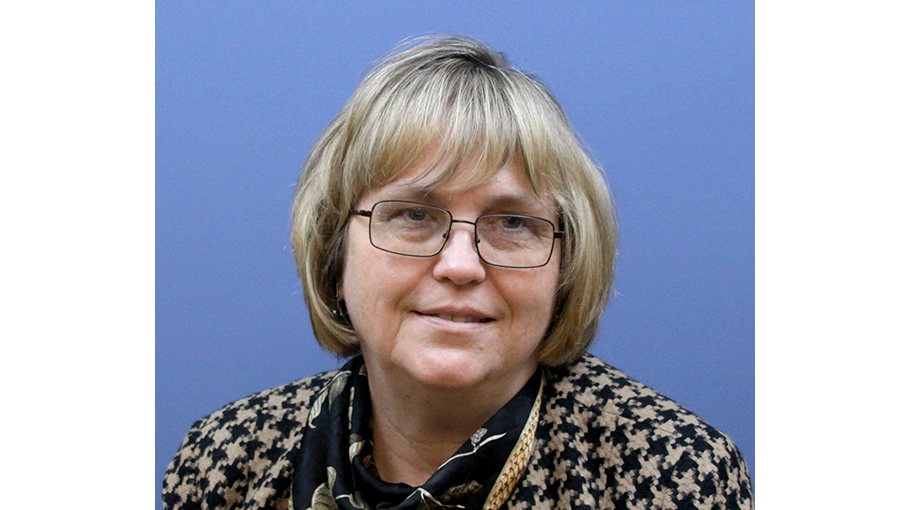‘We need to consider water a circular resource’
ASCE President Maria C Lehman tells Bangladesh Post


"State of the art in water resources has evolved to an understanding that we need to consider water as a circular resource," said Maria C Lehman P.E., ENV SP, FASCE, president of the American Association of Civil Engineers (ASCE) in an exclusive interview with the Bangladesh Post.
Maria, also the Director of US Infrastructure GHD, expressed the opinion that when we do have disruptions due to the stressors, we need to use our state of the art knowledge to rise to the challenge.
"Resilience is the key. With the amount of infrastructure that is currently necessary, we simply do not have the resources to waste on infrastructure that will not pass the test of time. Climate is changing and impacts are great. It is not fiscally responsible to build things that we will need to quickly replace", said Maria C Lehman while replying to a set of queries made by Bangladesh Post.
Maria talked to Bangladesh Post during her stay in Dhaka early this week as she had been joining an International Conference titled ‘11th International Perspective on Water Resources and the Environment” (IPWE) jointly organised by her organization ASCE- EWRI and IWFM, Bangladesh University of Engineering and Technology (BUET).
The excerpts of her interview is produced for the valued readers of Bangladesh Post
Bangladesh Post: First of all let me welcome you to Bangladesh. We know that you are now joining here an international conference titled ‘11th International Perspective on Water Resources and the Environment” (IPWE) organized by your organization ASCE- EWRI jointly with IWFM, BUET. Well, could you please brief us about the sources of inspirations to be the co-organizer of such a global event in Bangladesh?
Maria C Lehman: This is the 11th conference that has been held in developing nations. The conference Chair Dr Sufian Khodkir is from Bangladesh and it was originally planned to be held here because of the 50th anniversary of the Independence of Bangladesh. Covid-19 has changed the timing and because people are still concerned with travel, it was decided to do a hybrid conference with attendees in Dhaka and the Washington, DC area.
Bangladesh Post: We know that water resources and the mechanism of its effective management has emerged as a very significant issue across the globe in the contemporary world, so please explain us your views and expert opinions in this regard.
Maria C Lehman: The state of the art in water resources has evolved to an understanding that we need to consider water as a circular resource. Climate change is creating severe challenges to water on the planet, and we need to implement mitigation strategies to lessen impacts and make our development more resilient. When we do have disruptions due to the stressors, we need to use our state of the artknowledge to rise to the challenge.
Bangladesh Post: In your views what about the resilience in the time of climate change?
Maria C Lehman: Resilience is the key. With the amount of infrastructure that is currently necessary, we simply do not have the resources to waste on infrastructure that will not pass the test of time. Climate is changing and impacts are great. It is not fiscally responsible to build things that we will need to quickly replace.
Bangladesh Post: What are the challenging issues in water resources and environment now-a- days across the globe? How would you define their solutions?
Maria C Lehman: The issue is and has always been, is that there are many areas where there is either a deficit of water (drought) or an excess (flooding.) Climate change has created larger extremes, and more frequent disasters that have large impacts on society as well as are very expensive. We need better, long-term sustainable solutions.
Bangladesh Post: Unlike many developing countries, Bangladesh is facing major challenges in water sector includes increasing vulnerability to growing urban demands, climate change, environmental requirements, in your views how reduce this vulnerability?
Maria C Lehman: Reducing vulnerability requires better solutions that do not recognize political boundaries. It is imperative that engineers find their voice in public forums to work toward better geopolitical solutions. Engineers must be more involved in public policy both as advisers, but also participating in political offices.
Bangladesh Post: Now please brief us something about the ASCE-EWRI.
Maria C Lehman: ASCE is one of the world’s oldest and largest societies representing civil engineers. Established in 1852, ASCE currently has over 150,000 members in 177 countries around the world. Our vision is that Engineered and natural systems work in harmony for the benefit of Humanity. Our mission is to lead the civil engineering profession to sustainably advance and protect the wealth, safety and welfare of all. Our commitment to our members is to inspire, connect, and serve our global membership to maximize their professional and personal growth and magnify their lifelong professional impact.

